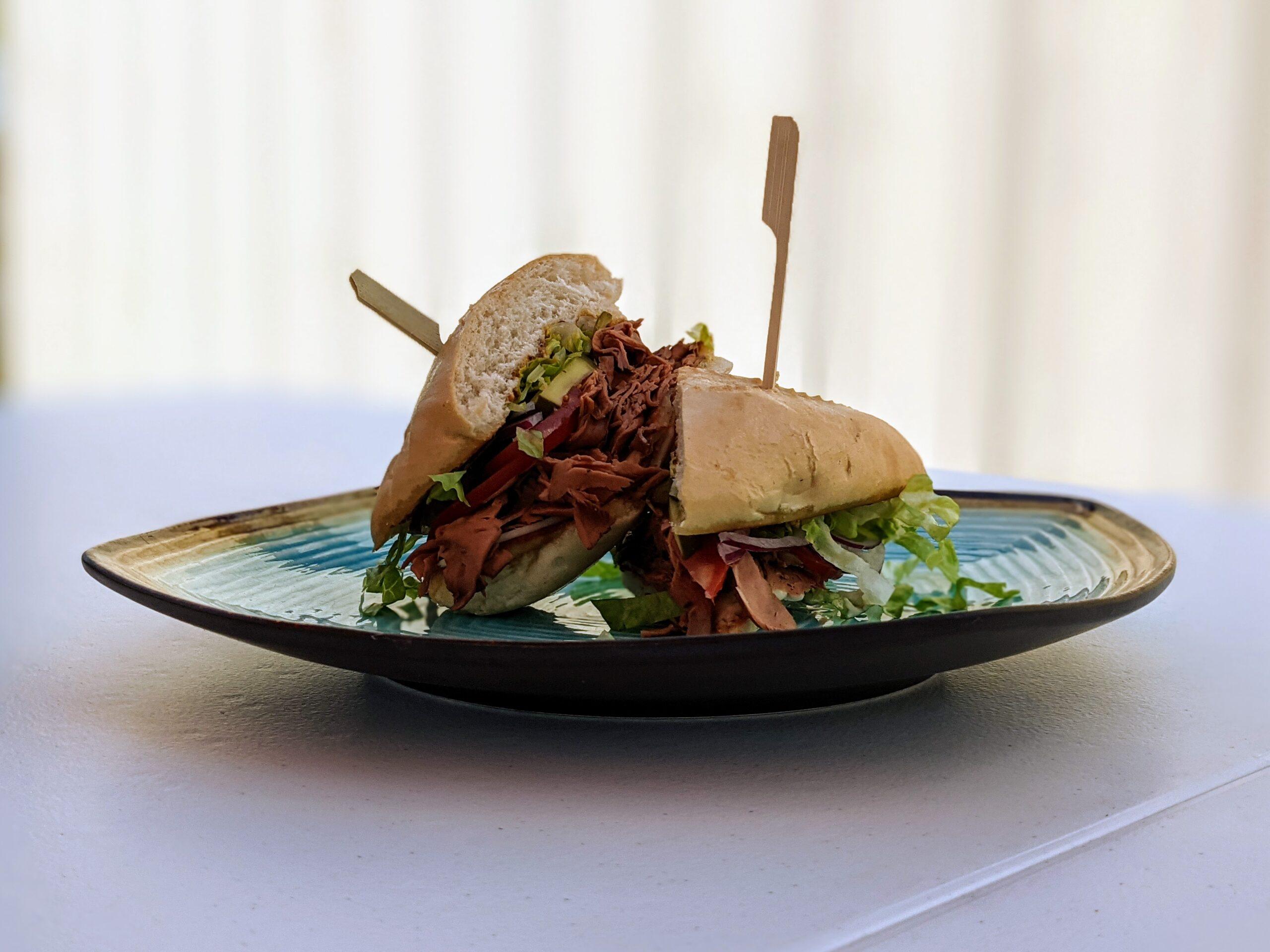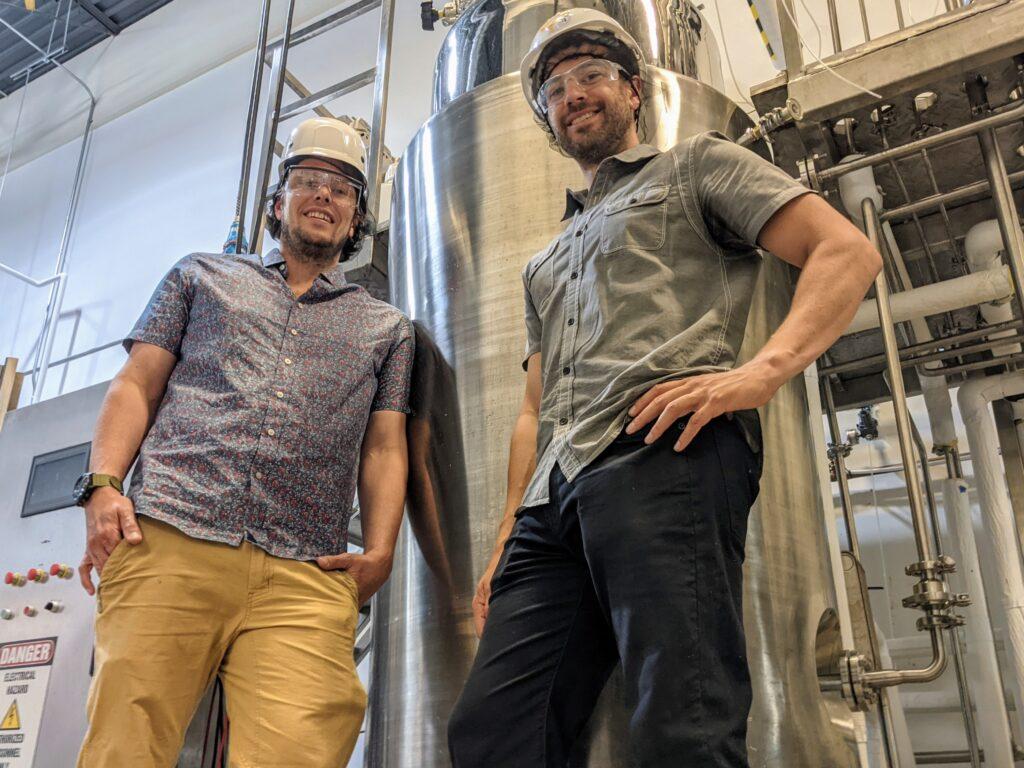
The meal looked every bit like a Nashville-style hot chicken sandwich.
Of course, it wasn’t. Meati Foods, a Boulder-based startup, had prepared the lunch so I could sample a food it hopes to turn into a whole new category of protein. The “chicken breast” was in fact a pressed bundle of fungus, grown and processed to resemble the common sandwich filler.
In the last few years, other ventures have succeeded by using plants to mimic traditional meat products. Beyond Meat and Impossible Foods, the two leading companies, have drawn fans with foods built from a variety of roots and vegetables. Their burger products even include color additives so they appear red or bloody. One estimate found the worldwide market value is now close to $13 billion.
Meati Foods is one of a number of companies hoping fungi, not plants, could be key to winning the protein wars and confronting climate change. Over lunch, co-founders Tyler Huggins, the chief operating officer and Justin Whiteley, the chief technology officer, said the company plans to go further in imitating meat products. Instead of only faux burgers and sausages, the company is making whole cuts like steak or chicken breasts.
“To start, I want to give customers something they are familiar with,” said Huggins. “It’s a great way to introduce this ingredient.”
My unrefined palate can report the company is remarkably close to its goal. The meat smelled and tasted like fried chicken. I could only notice a slight difference in the texture. As I chewed, it shifted from the stringiness of bird meat into something softer.
The whole experience left me stuffed with food and self-doubt. I arrived assuming it would be easy to catch an imposter piece of processed fungus. I left wondering if I even knew the taste of chicken at all.
Taking A Bite Out Of Climate Change
There’s little question traditional meat has enormous environmental consequences.
One 2020 study attempted to imagine the benefit of everyone shifting to a plant-based diet by 2050. If it happened, the scientists concluded people could avoid enough emissions to likely limit warming to 1.5 degrees Celsius, the threshold many scientists see as critical to maintaining a safe climate.
The latest climate change assessment prepared for the United Nations found the planet will likely surpass the benchmark sometime in the 2030s.
Huggins and Whiteley founded Meati Foods to help solve the problem. The pair met as Ph.D. students at the University of Colorado Boulder, where Whiteley studied material science and Huggins studied environmental engineering.

Both became enamored with the idea of using fungus as a biological factory for novel materials. After experimenting with water filters and lithium-ion batteries, the partners eventually landed on fungus-based meat and won a grant to develop the idea at Argonne National Laboratory outside Chicago. They returned to Boulder to found the public benefit corporation in 2016.
The potential environmental benefits come from the efficiency of the production process. At the moment, its Boulder facility centers on a tall steel tank growing strands of fungus known as mycelium, similar to the root structure of a mushroom. It feeds off of a sugar-water solution, doubling in weight every few hours.
“In 500-square feet or so here, we’re growing the cow-equivalent amount of protein in a four-day period,” Whiteley said.
Unlike other plant-based meat alternatives, Huggins said the company only relies on crop production for the sugar to feed the mycelium. He thinks it might even be possible to someday replace it with wastewater from the beer brewing process and the beverage industry, which often contains leftover sugars and other carbohydrates. “Fungi are very good at breaking that down,” Huggins said.
At the moment, the company is focused on expansion. Earlier this year, the company closed a $50 million round of investment to help build an 80,000-square-foot production facility in Thornton. Huggins expects it will be able to produce upward of 30 million pounds of meat alternative each year, enough to supply a national roll-out in 2022.
Exiting The Uncanny Valley
The rapid pace of investment in alternative meats is also why Meati Foods is guarded about its process. While it offered a short tour of its fermentation facility, Huggins and Whiteley would not show its processing process where the mycelium is made into the final product.
“That’s where a lot of the secret sauce happens,” Whiteley said.
The company would also not reveal the exact species of mycelium in its product. Huggins would confirm the variety is native to wildfire burn scars, where it evolved the ability to rapidly grow in damaged soils. He added it had not been genetically modified in any way.
There’s a chance secrecy could open up a new line of attack from the traditional meat industry. One recent ad campaign attempted to tag plant-based meat processes as “ultra-processed imitations.” It also asked customers to consider “what’s hiding” in alternative meat products.
Peter Newton, an associate professor of environmental studies at CU, isn’t sure the criticism really matters. Rather than focus on the degree of processing, he said it’s probably better for consumers to look at the nutritional label.
“If you think about when we cook, we process food, we chop, we mix, we combine, we otherwise alter ingredients from one form to another. At a fundamental level, that’s all processing is,” Newton said.
The founders also aren’t concerned about charges of “ultra-processed food.” At the end of the day, Huggins said the Meati products are almost entirely made from a single type of mushroom with some additional ingredients to add flavor and texture. He said the company can also be more transparent about its production process after it widely releases its products.
As for nutrition, Huggins said customers will find the final results are packed with vitamins, protein and fiber.
“It’s really this hybrid between animal and plant nutrition in one,” Whiteley said.
In a future deli section, he thinks those benefits will be what matters to customers, not the strangeness of a fungus somehow molded into a sirloin steak.








